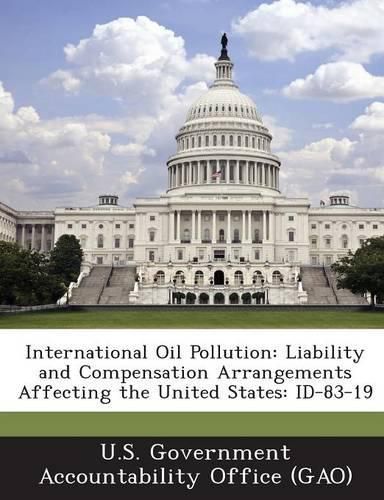Readings Newsletter
Become a Readings Member to make your shopping experience even easier.
Sign in or sign up for free!
You’re not far away from qualifying for FREE standard shipping within Australia
You’ve qualified for FREE standard shipping within Australia
The cart is loading…






GAO conducted a study to: provide pertinent background about the incidence and impact of ocean oil spills; describe the current liability and compensation regimes; identify the principal perceived defects of the present arrangements; and discuss alternatives that have been proposed. GAO found that a patchwork of international, national, and state arrangements currently governs ocean oil spill cleanup, liability coverage, and damage compensation. Informed observers agree that the system does not effectively protect U.S. public and private interests from the risks of ocean oil pollution. In particular, the present arrangements: require an unnecessary expenditure of federal funds; compel spill victims to seek damage compensation under costly, time-consuming procedures; create uncertainty as to the spiller’s liability and subject oil and tanker industries to multiple claims; entail duplication of federal administrative arrangements and activities; can produce inadequate and erratic funding to defray cleanup costs; rely heavily on voluntary agreements which have their own limitations and uncertainties; and reduce U.S. Government influence within the international forums where the standards and procedures for a uniform international liability and compensation regime are currently under review. To overcome such defects, ratification of the pertinent international conventions, enactment of a U.S. statute that would provide a uniform and comprehensive federal regime, or a combination of both have been proposed. To date, the Senate has declined to give consent to U.S. ratification of the international conventions primarily because coverage and limits are considered inadequate. In addition, the international conventions would preempt the laws of states concerning liability limits and financial responsibility requirements.
$9.00 standard shipping within Australia
FREE standard shipping within Australia for orders over $100.00
Express & International shipping calculated at checkout
GAO conducted a study to: provide pertinent background about the incidence and impact of ocean oil spills; describe the current liability and compensation regimes; identify the principal perceived defects of the present arrangements; and discuss alternatives that have been proposed. GAO found that a patchwork of international, national, and state arrangements currently governs ocean oil spill cleanup, liability coverage, and damage compensation. Informed observers agree that the system does not effectively protect U.S. public and private interests from the risks of ocean oil pollution. In particular, the present arrangements: require an unnecessary expenditure of federal funds; compel spill victims to seek damage compensation under costly, time-consuming procedures; create uncertainty as to the spiller’s liability and subject oil and tanker industries to multiple claims; entail duplication of federal administrative arrangements and activities; can produce inadequate and erratic funding to defray cleanup costs; rely heavily on voluntary agreements which have their own limitations and uncertainties; and reduce U.S. Government influence within the international forums where the standards and procedures for a uniform international liability and compensation regime are currently under review. To overcome such defects, ratification of the pertinent international conventions, enactment of a U.S. statute that would provide a uniform and comprehensive federal regime, or a combination of both have been proposed. To date, the Senate has declined to give consent to U.S. ratification of the international conventions primarily because coverage and limits are considered inadequate. In addition, the international conventions would preempt the laws of states concerning liability limits and financial responsibility requirements.